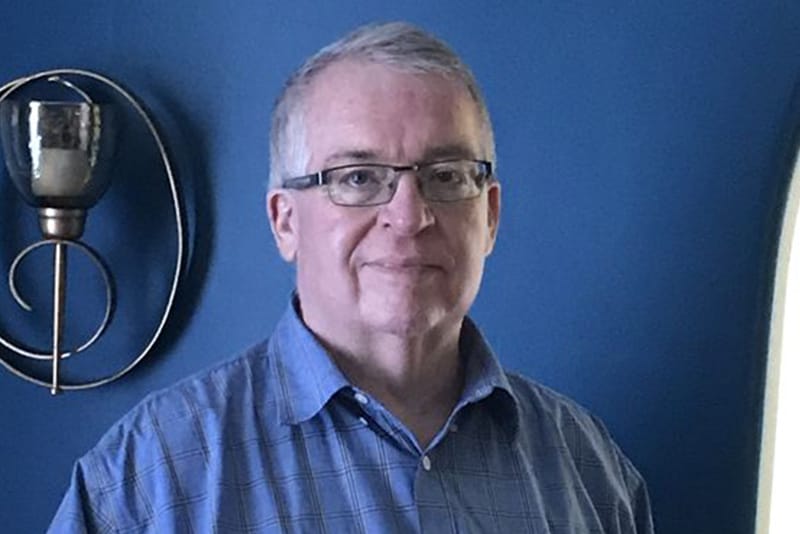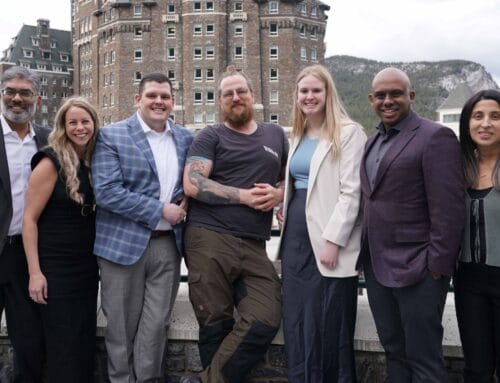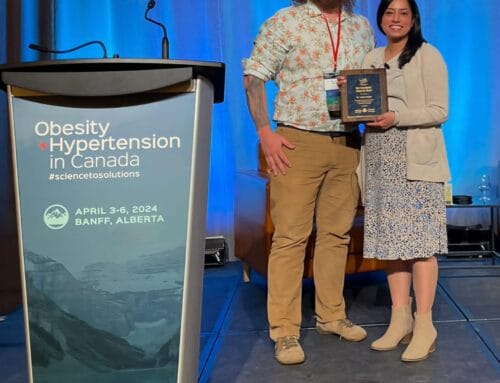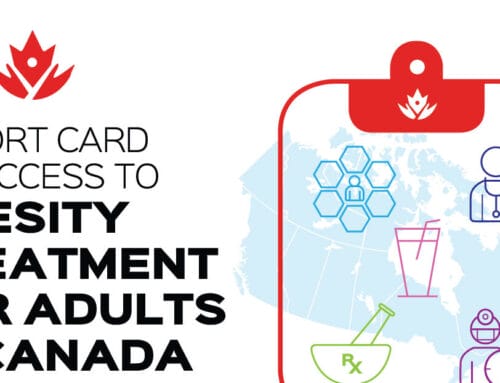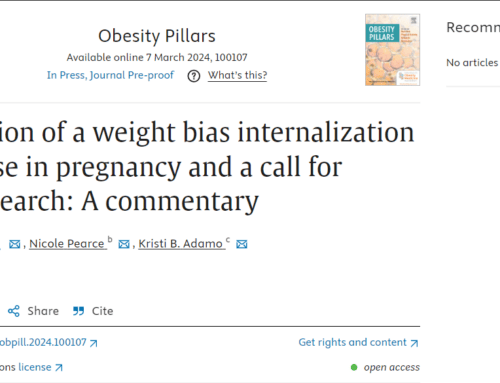Each month, OC shines the spotlight on the great things our volunteers and partners are doing to improve the lives of individuals living with obesity.
Who are you, what do you do and what is your lived experience with obesity?
My name is Doug Earle. I am 68 years old, and have been retired for about 10 years.
From my early years, I was the heaviest kid in the classroom Through my 20’s and 30’s my weight continued to increase. In 1990, at age 40, I joined a fitness program for overweight men. It was a three-month program with physical activity three-times a week and a one-hour class dealing with the health aspects of obesity, talks with MDs, dietitians, and psychologists.
Over the next 10 months, exercised increased to six days a week, with workouts of 60 to 90 minutes. I went from 285 pounds to 220 pounds.
I continued exercising three times a week for the next two years but suffered an acute plantar fasciitis incident. I gained about three pounds a month in the year before I could get back to exercising
At about 260 pounds I began exercising again but I was back on medication for hypertension. In 1998, I got a stressful new job. I stopped exercising and gained about 125 pounds over the next seven years, with very little physical activity. In early 2006 I needed a bowel resection, and I weighed 400 pounds. In the three months prior to my surgery I lost 60 pounds. I was exercising, but at reduced intensity.
In 2011, at 60 years of age and 380 pounds, my doctor told me that, due to my weight, hypertension and general condition, I had a 25% chance of a major heart attack or stroke in the next 10 years.
I joined a weight loss program available through my local Health Authority. I lost 70 pounds and I started regular exercise again. However, within a year I went back to poorer eating habits and gained 20 pounds.
In 2013, I took the weight loss program again and got down to 245 pounds. I continued to go to group exercise classes four time a week. I re-gained about 10 pounds after about a year.
In 2015, I did the program a third time. I have been in the range of 270 to 280 pounds for last few years. But, I find it more difficult to maintain.
Why did you get involved with Obesity Canada?
While going through the Health Authority weight loss program, I let the manager know I was willing to volunteer as a patient living with obesity if ever there was a need. I was asked to be on a panel to talk about living with obesity in January 2015. That panel was before a class of first-year medical students. Apparently, the students found my talk useful and I have talked to other medical students over the past five years. One of the other panel members suggested to Obesity Canada that they should consider me as a local representative on the Public Engagement Committee. The Committee chair invited me to join in the summer of 2017. My life experience of living with obesity gives me a perspective that I gained from living with this chronic disease.
Why do you think patient advocacy is important for obesity?
Patient advocacy is important because. unless one has personally experienced what it can be like dealing with the challenges people living with obesity have every day, one can’t understand what it is like. These hurdles are not only put there by others but also as a result of having to deal with society on a regular basis; from finding decent clothes to accessing public services, dealing with the “look” from others as one walks through a mall to air travel.
As a patient advocate, what do you want to accomplish in the next five years? What is the dream outcome for your efforts?
As a result of training received through Obesity Canada, I learned much about living with obesity that is not only new to me but seems contrary to what society believes about obesity. Living with obesity has resulted in permanent changes to my body’s systems. Changes that mean my body, having lost weight, is fighting against itself to regain that weight. Experience and current understanding of living with obesity tells us that it is likely we will fail to achieve or maintain a body size deemed to be “normal.” In the next five years, I hope to be able to spread the word about the current science-based understanding of this chronic disease in order to aid the public to better understand the challenges and help to reduce the misunderstanding and un-founded bias against those of us living with obesity. My dream outcome would be the bias against those living with obesity received from the medical community be eliminated. This will be an immense challenge.

